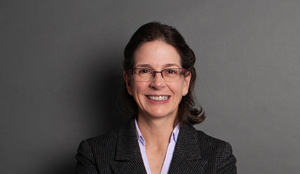UK Court of Appeal rejects DABUS patent application
On 21 September 2021 the Court of Appeal handed down its highly anticipated decision in Thaler v Comptroller-General regarding registrability of UK patents with an AI system named as the inventor. Read our summary and analysis of the first instance decision here and here.
By a majority 2-1 decision (Arnold and Laing LJJ in the majority and Birss LJ dissenting) the Court rejected Dr Thaler’s appeal and upheld the decisions of the UKIPO hearing officer and Smith J that a UK patent cannot be granted where an AI system is named as the inventor. Dr Thaler had applied for two GB patents, stating that the inventor was “DABUS” and that he had the right to be granted the patents “by ownership of the creativity machine ‘DABUS’”. When challenged by the UKIPO, Dr Thaler had stated “the applicant identified no person or persons whom he believes to be an inventor as the invention was entirely and solely conceived by DABUS”. The applications were deemed withdrawn by the UKIPO on the basis that DABUS could not be considered an inventor and Dr Thaler was not entitled to apply for the patents. He had therefore failed to comply with the requirement under section 13(2) of the Patents Act 1977 to file a statement “(a) identifying the person or persons whom he believes to be the inventor or inventors; and (b) … indicating the derivation of his or their right to be granted the patent”.
The three issues to be decided on appeal were summarised by Birss LJ as:
- Does the Patents Act 1977 require that an inventor be a person?
- What is section 13 of the 1977 Act for, and how does it work?
- What is the right response to the information Dr Thaler has provided under section 13(2)?
Is an inventor required to be a person?
On this ground the Court of Appeal was agreed; the Patents Act defines an inventor as the “actual deviser” of an invention and the Act had been drafted on the footing that only a person could be the actual deviser. Birss LJ reached this conclusion through a review of the origins of the term ‘actual deviser’ in UK patent law along with an analysis of the way the language of the Patents Act 1977 is drafted, which he concluded showed a clear intention that only a person could be considered an inventor and since DABUS was a machine, it could not be the inventor, even if it created the invention. Arnold and Laing LJJ agreed that the language of section 7 and other provisions of the Act could not be interpreted as permitting something other than a person to be considered an inventor.
The operation of section 13
While the Lord Justices of Appeal agreed that DABUS was not an inventor within the meaning of the Patents Act, they disagreed regarding the application of section 13 and whether the UKIPO had been right to conclude that Dr Thaler had failed to provide the information required under section 13(2) with the result that his applications were deemed withdrawn. The main area of disagreement was whether an honest subjective belief in the identification of the inventor and the applicant’s derivation of title from the inventor was sufficient to satisfy the requirements of section 13(2).
As a starting point to their analysis, the Lord Justices were agreed that section 13(2) was intended to ensure that bona fide errors in identifying the inventor(s) or the derivation of the applicant’s title should not prevent the applicant from obtaining a patent or render the patent liable to revocation. Furthermore, they agreed that it was not the purpose of section 13(2) to enable the Comptroller to investigate, let alone ratify, the factual correctness of the answers given by the applicant in its application forms. However, Arnold and Laing LJJ concluded that section 13(2) went beyond requiring the applicant to state their subjective beliefs and also required the Comptroller to examine whether those statements identified a person (or persons) who was (were) the inventor(s) and a means of deriving title from them which fell within the statutory grounds set out in the Patents Act. In Dr Thaler’s case, while it was accepted that he had stated his honest subjective belief, his identification of DABUS as the inventor was not the identification of an inventor within the meaning of the Patents Act and the hearing officer had been right to reject the application under section 13(2). Arnold and Laing LJJ also concluded that Dr Thaler had failed to identify how he derived his right to be granted the patent. Arnold LJ addressed this issue in detail, examining Dr Thaler’s submissions that the common law of accession (under which the owner of a tree also owns the fruits of the tree) provided a rule of law under which he, Dr Thaler, had acquired the property in the invention. Arnold LJ rejected this submission, holding that this rule only applied to the production of tangible property and there was no principle of law that an intangible right (such as intellectual property) created by a person’s property is owned by that person. Laing LJ considered it to follow from the conclusion that DABUS was not an inventor within the meaning of the Patents Act; if DABUS could not own the property in the invention then this property could not have been transferred to Dr Thaler.
Birss LJ disagreed with the conclusion that section 13(2) imposed any obligation on the Comptroller to examine an applicant’s claim to title. He considered the purpose of section 13(2) to be the creation of a public record of who is said to be the inventor and how the applicant (if they are not the inventor) is said to derive title from them. The Patents Act provides specific mechanisms to challenge the statements made by the applicant under section 13(2) in the form of pre- or post-grant challenges to entitlement, but these grounds are only available to a person who claims to be entitled to the grant, and a lack of entitlement is not a ground on which the Comptroller can refuse the grant of a patent. Birss LJ did not shy away from the fact that this meant that Dr Thaler’s claim to the patent might well never be tested; however, that consequence was deliberately built into the scheme of the Act. Since Dr Thaler had complied with section 13(2) in stating his honest belief in the identity of the inventor (DABUS) and the derivation of his right to apply for the patent, Birss LJ concluded that the applications should not have been deemed withdrawn by the UKIPO. The fact that the creator of the inventions in this case was a machine was no impediment to the patents being granted to Dr Thaler.
Result
The majority decision of Arnold and Laing LJJ that section 13(2) requires the Comptroller to assess whether the applicant has identified an inventor within the meaning of the Patents Act and a known legal basis on which the applicant has derived the right to apply for the invention resulted in Dr Thaler’s appeal being refused. The only remaining hope for Dr Thaler to obtain a UK patent is therefore obtaining permission for a further appeal to the Supreme Court, which will only be granted in relation to arguable points of law with general public importance. The dissenting judgment of Birss LJ will certainly put some wind in the sails of a potential Supreme Court appeal, demonstrating that there is clearly an arguable point of law regarding the interpretation of section 13(2). The main obstacle to overcome will therefore be whether Dr Thaler can establish that the issue is of general public importance. On the one hand, the rapid advances in AI technology and the increasing use of AI systems in research and development would point towards the issue of AI inventors being something which requires a definitive answer from the Supreme Court. On the other, following its “Call for Views” on AI and IP in Autumn 2020, the UKIPO has already stated that it intends to consult on changes to the Patents Act 1977 with regard to inventions generated using AI systems. A Supreme Court decision on the current law may therefore have limited utility if the issue is to be addressed by Parliament in the near future. Whatever the outcome, clearly the Court of Appeal’s decision will not be the final word on UK law and AI inventions.

